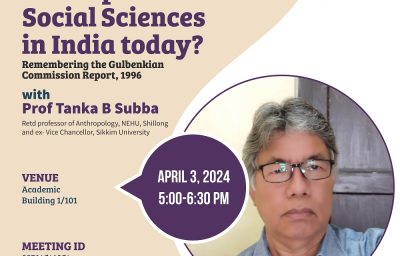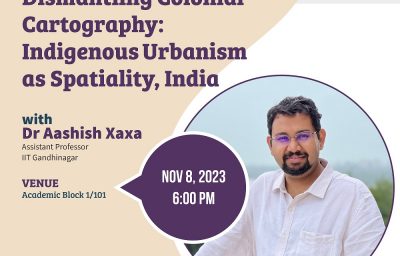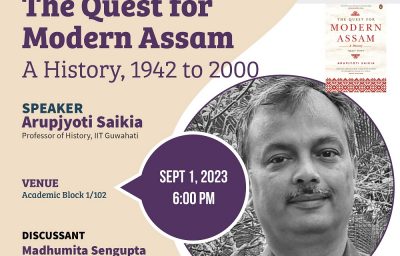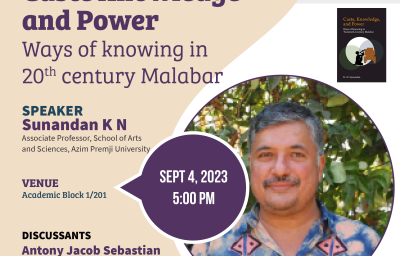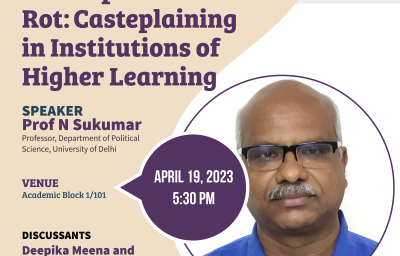Bio:
Sarthak Bagchi is an Assistant Professor at the School of Arts and Sciences. He worked as a doctoral research scholar at the Institute for Area Studies, Leiden University, in the Netherlands. Trained as a political scientist from the University of Hyderabad, where he did his MA and MPhil, Sarthak has been a keen observer of electoral politics, party systems and state politics in India. His research interests lie in the topics of patronage politics, populism, electoral politics, state-society relations, party politics, informal politics and comparative politics. He has also conducted research to understand politics in other countries such as Turkey, Indonesia and the Netherlands. He also writes on politics for general audiences in The Wire, The Indian Express and The Hindu Centre for Politics and Public Policy. Sarthak has also worked as a journalist with TV news channel, News X, before entering academics. Sarthak has previously worked as a researcher with KITLV (Royal Netherlands Institute of Southeast Asian and Caribbean Studies), Leiden and Göttingen University, Germany.
Abstract:
Vote buying is the distribution of rewards to individual or small groups of voters during elections in contingent exchange for their vote choice (Nichter 2014: 316). Seen as an integral component among the large gamut of clientelistic practices, vote buying is considered undemocratic (Stokes 2007) and illegal or even immoral, by some standards, bringing forth a complex interface between money and morality. Vote buying arrangements by politicians in modern democracies are often seen to be highly transactional in nature, while at the same time, many scholars have found normative ideas of reciprocation and obligation being attached to the practice of buying and selling votes. When ‘money’ alone is not seen as useful in buying votes (Bjorkman 2012), or when entrenched secret ballot systems like the ones prevalent in Indian elections makes it difficult to monitor the compliance in vote buying deals (NES 2009), following questions are worth consideration: How do politicians engage in vote buying to make it an effective tool for electoral mobilization? and more importantly, why do politicians indulge in vote buying practices if it is not proving to be effective?
Drawing ground level insights from long-term ethnography over two Assembly election campaigns in Maharashtra and Bihar, this paper analyses the concept of vote buying as it is practiced in Indian elections from two perspectives: One view focuses on those who sell the votes, the voters’/ clients’ point of view and reversing the gaze, the other view focuses on those who organize and facilitate vote buying from the patron’s/politician’s end. Using interviews with politicians, local leaders, brokers, campaign managers and voters, and close observations of the election campaigns, I explain the operationalization of vote buying practices and strategies in Indian elections. I argue that unlike the common perception of vote buying being just a one time transaction of bribe exchanging hands during the night before elections, in actual practice brokers or local leaders go through an extended process of consolidating and interacting with the targeted voters, who are likely to be bought for electoral support. The consolidation, targeting and the negotiations involved in the process are seen as a part of the vyavastha, which this paper uses as an analytical category to explain the multiple embedded meanings of vote buying in India. Finally, weaving through the narratives of mobilization and negotiation in vote buying practices, this paper also highlights the transformations which have taken place in the practice of vote buying and how this transformation has changed the nature of clientelistic politics in India.
Venue:
Date: Wednesday, January 22
Place: AB 6/202
Time: 2:30 – 4:00 PM


